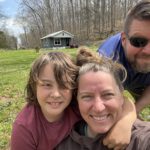For many cancer survivors, the journey doesn’t end with the final treatment. While the fight against cancer itself is a monumental challenge, the road to recovery and a thriving life after diagnosis brings its own set of hurdles. Studies show that more than half of cancer survivors have to overcome new physical limitations caused by treatment, and a significant number grapple with anxiety and depression. At the same time, research also shows that social support can be one of the main factors in improving the quality of life at any stage of the recovery process.
That’s why building a strong support system after cancer treatment is crucial. It’s a powerful tool that can help survivors navigate the physical, emotional, and social challenges of a cancer diagnosis and treatment.
Our programs at Survivor Fitness were created with this goal in mind. We’ve experienced firsthand how isolated and overwhelmed survivors (and their families) can feel after treatment, and we wanted to design programs that foster connection and empower individuals to take charge of their well-being.
Having worked with hundreds of inspiring survivors, we’ve compiled some valuable insights and strategies for building a support network that will uplift you on your journey.
Building Your Village: Ways to Find Support After Cancer Treatment
Think of your support system as your own personal village—a network of people who provide strength, encouragement, and practical assistance on your journey. Here are some key ways to build this village:
1.) Mental Health Counseling
Cancer treatment can leave emotional scars. Mental health counseling offers a safe space to address anxieties, depression, or post-traumatic stress. Therapists can equip you with coping mechanisms to manage stress, anxiety, and emotional challenges. They can also help you develop communication tools to effectively express your needs and feelings to your loved ones. Investing in your mental well-being through therapy is an investment in your overall quality of life.
At Survivor Fitness, we’re thrilled to announce that we recently integrated mental health counseling into a program through a partnership with BetterHelp.
Physical Activity Programs
Exercise can help combat fatigue (a common post-treatment challenge) and improve overall physical fitness. But getting your body moving isn’t just good for your physical health; it can also profoundly impact your mental well-being. The endorphin rush from physical activity can also significantly reduce stress, anxiety, and symptoms of depression. Additionally, engaging in physical activity programs provides a sense of accomplishment, boosting self-esteem and fostering a sense of control over your health.
2.) Nutritional Support
Proper nutrition is vital to recovery and overall health after cancer treatment. Learning about foods that boost energy can be particularly helpful in managing fatigue. A good nutritionist can also guide you through any changes in your diet that may have occurred due to your cancer experience. They can also help you develop a personalized plan that addresses any lingering side effects, supports your recovery process, and promotes long-term well-being.
3.) Reinvigorating Friendships
Don’t underestimate the power of your existing support system: your friends, family, and loved ones. Talk to them about your needs after treatment, and don’t be afraid to ask for help, even with small tasks. Remember, treatment can sometimes shift relationship dynamics. It may be helpful to suggest specific ways loved ones can be supportive, such as grocery shopping or childcare. By being clear about your needs and fostering open communication, you can strengthen existing bonds to create a more robust support system.
4.) Cancer Support Groups
Connecting with others who understand the unique challenges of survivorship can be incredibly validating and reduce feelings of isolation. Support groups offer a safe space to share fears, anxieties, and triumphs. You’ll gain valuable emotional support and encouragement from others who have walked a similar path. Additionally, they provide a sense of community and belonging, helping participants to foster new friendships and combat loneliness.
By incorporating a combination of these elements, you can create a well-rounded support system that caters to your physical, emotional, and social needs. This holistic approach empowers you to manage your health, fosters a sense of community, and ultimately improves your overall quality of life.
Encouragement for the Journey
Building a solid support system takes time and exploration. Here are some helpful insights gleaned from our participants:
- Be Patient with Yourself: Don’t get discouraged if you don’t find your perfect support system overnight. Explore different options and give yourself time to see what resonates with you.
- Focus on Shared Activities: Plan outings or activities everyone can enjoy, keeping any physical limitations in mind. This is a fantastic way to rebuild connections and create new memories.
- Mindful Communication: Focus on the present and avoid dwelling on the past or making assumptions about how you should feel. If helpful, develop a mantra or mindfulness practice to stay present.
- Celebrate Milestones: Acknowledge and celebrate your post-treatment milestones, big or small. This helps maintain a positive outlook and keeps you motivated.
- Focus on Your Individualized Needs: Everyone’s needs and preferences are different. There’s no one-size-fits-all approach to building a support system. The key is to find what empowers you to thrive.
Survivor Fitness: Programs to Help You Thrive
At Survivor Fitness, we understand the unique challenges cancer survivors face after treatment. By creating a supportive environment and fostering a sense of community, we can empower survivors to thrive—not just survive.
Our programs are designed to be a cornerstone of your support system, offering a holistic approach to your well-being. We combine personalized 1-on-1 training to help you regain strength and confidence, nutritional coaching to optimize your health, and mental health support to address any emotional hurdles.
If you’re looking for a comprehensive program designed specifically for cancer survivors, we encourage you to learn more about our programs or apply today to join our supportive community. Remember, you are not alone on this journey. With the right support system in place, you can live a full and vibrant life after cancer treatment.


